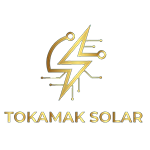These FAQs cover a wide range of topics that potential and existing solar panel users commonly inquire about, providing a comprehensive overview of what to consider when investing in solar energy. If you have more questions, please contact us at [email protected]
Tokamak Solar, LLC
CSLB License #: 1143455
16185 Los Gatos Blvd.
Ste 205
Los Gatos, CA 95032
Subscribe to our newsletter & get all the latest news about Solar Panels, Regulations, etc.
Copyright 2023. All Rights Reserved.

